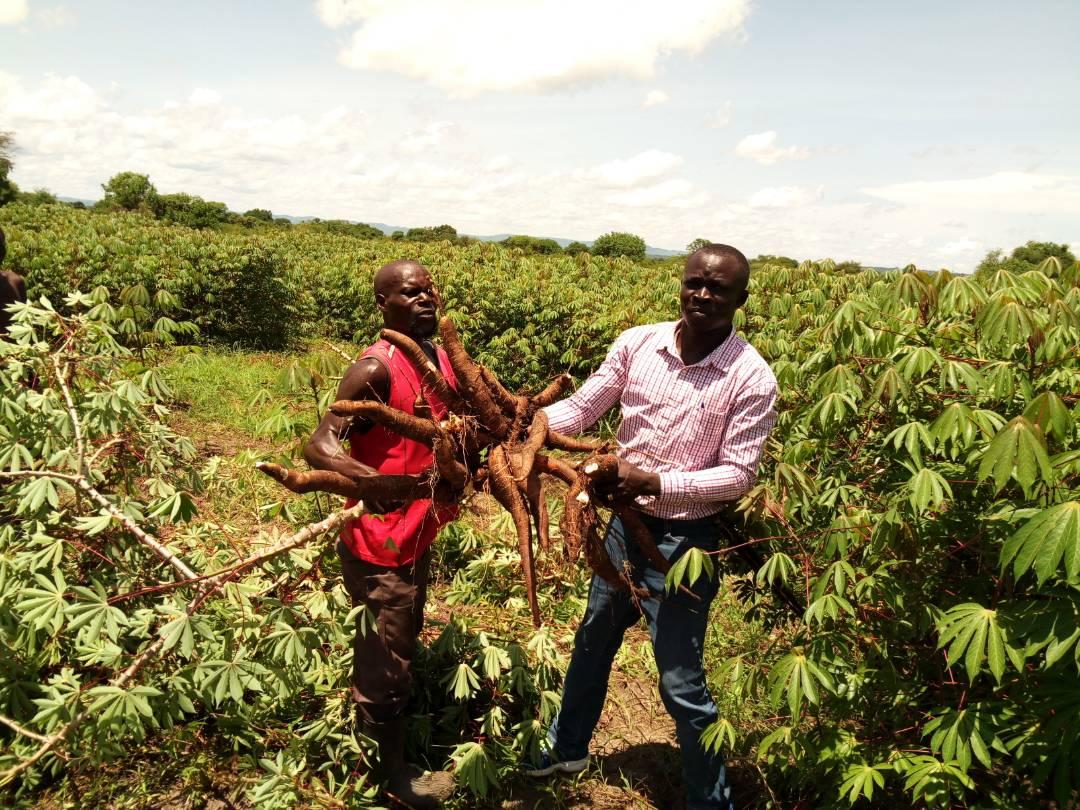Agricultural training translates into multiple profits for rural farmer
“Before I joined the Complementary Farmers’ Group and
received training from CEFORD, I only produced food for subsistence purposes
using traditional methods of digging. My harvest was low; just enough to feed
my family without any surplus for sale,” says 42-year-old Ronnie Ajobe, a farmer in Tulenge village, Rhino Camp
refugee settlement, where he stays with his two wives and eight children.
Ajobe’s story today is a far
cry from what he was going through in the past. Having joined a farmers’ group,
he received training in improved farming skills as well as farm inputs and, as
they say, the rest is history.
Ajobe is one of the many
farmers supported by Community Empowerment for Rural Development (CEFORD), a
non-governmental organisation based in West Nile implementing the Support
Programme for Refugees and Host Communities in Northern Uganda (SPRS-NU), which
is funded by the European Union Emergency Trust Fund (EUTF).
Through its livelihood programme, CEFORD works with
groups comprising refugees and Ugandans (host communities), facilitating them
to achieve home-based food security as well as income to enable them meet their
other needs and save.
“Ultimately,
we hope to achieve the SPRS-NU objective of improving the communities’
livelihoods through better food and nutrition security in the settlement and
host community as well as a stronger business environment and improved
commercial flow between the communities,” says Godwin Amege, CEFORD Project
Coordinator.
Ajobe belongs to Complementary
Farmers’ Group, made up of 25 members, 17 of whom are refugees from South Sudan
(12 females, 5 males) and eight Ugandans (3 females, 5 males).
CEFORD ensured that the group
received training in group dynamics to enable peaceful co-existence, strengthen
their leadership and resource mobilisation skills and team work.
The group was taken
through the Participatory Agro Enterprise Development (PAED) training, under which
they learnt how to develop business plans and select enterprises. They realised
that cassava production was a profitable business in the refugee settlement and
therefore selected it as their investment venture.
The program supported selected
farmers to participate in the production of cassava cuttings for seed
multiplication and Ajobe was one of them.
“I received six bags of
cassava stalk (NASE 19) as part of the start-up input, which I planted on three
acres of land at a cost of UGX400,000. I had to cut the stalk into smaller
sizes in order to fill the three acres. Weeding cost me UGX2,400,000, making a total
cost of UGX2,800,000,” says Ajobe.
After just nine months, Ajobe and his family are reaping
twofold – the cassava tubers provide food while the stalks can be sold for re-planting.
Ajobe currently sells cassava stalks to farmers in new groups; having harvested
150 bags of stalks, he sells each at UGX40,000, earning UGX6,000,000.
Ajobe expects to earn an additional UGX6,000,000 from
the unharvested stalks as well as UGX7,200,000 from selling the cassava tubers.
Cassava tubers are a common food in West Nile, and can be boiled or dried and
ground to make cassava flour. He will earn a total UGX19,200,000, making a
profit of UGX16,400,000!
“I am grateful to CEFORD and the European Union for this
project, which has opened our eyes to achieve what we want through farming – not
only food but income as well,” Ajobe says.
Ajobe also participated in business training, which empowered
him with knowledge about marketing: he now knows how, where, when and to whom
to sell his produce.
From his earnings, Ajobe has already bought a piece of
land in the nearby trading centre.
“Our plan as a family is to construct a permanent
house in Kubala. We will also expand our cassava plantation,” he says.
Dernières actualité de ce projet
Pas d'actualité

